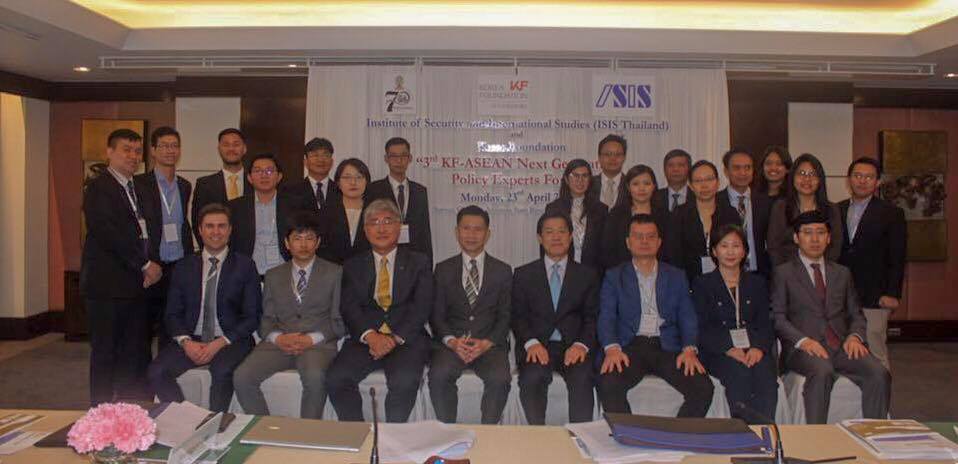News and Events
Roundtable Discussion on US-China Trade War: “Mapping the Implications of Sino-US Economic War on the Philippines and ASEAN”
- Details

Last May 11, Pathways to Progress held a Roundtable Discussion on the issue of a looming US-China Trade War, at the Astoria Plaza in Pasig City. The event titled “Mapping the Implications of Sino-US Economic War on the Philippines and ASEAN” gathered economists, academics, and representatives from the relevant government agencies such as the National Economic and Development Authority (NEDA) and Department of Foreign Affairs (DFA).
APPFI Joins ASEAN-ISIS
- Details
The Board of Trustees is proud to announce that Asia Pacific Pathways to Progress Foundation has become the Philippine member of the ASEAN Institutes for Strategic and International Studies (ASEAN-ISIS). Long-time observers of Asia Pacific regional affairs know ASEAN-ISIS as an indispensable network of think tanks from across Southeast Asia that has tirelessly injected policy ideas and advocacies for consideration of governments in the region. Pathways takes over the Philippine representation from the Institute for Strategic and Development Studies (ISDS), and hopes to continue the decades-long distinguished record of performance of ISDS under the indefatigable leadership of Prof Carolina Hernandez.
Among the prominent activities of ASEAN-ISIS are the Asia Pacific Roundtable for Confidence Building and Conflict Resolution (APR) held annually in Kuala Lumpur and organized by the ISIS Malaysia, an ASEAN-ISIS-IIR Taiwan Dialogue, an ASEAN-ISIS-Australia-New Zealand Dialogue, and participation in the Council for Security Cooperation in the Asia Pacific. In the past, it also played a major role in pushing the regional human rights agenda and civil society participation through the ASEAN-ISIS Colloquium on Human Rights (AICOHR), and the ASEAN People’s Assembly (APA).
PFVR joins Pathways as Senior Adviser
- Details
Former President Fidel V. Ramos graciously accepted the invitation to lead the Board of Senior Advisers of Asia Pacific Pathways to Progress Foundation.

President Ramos, who served as the country’s 12th President from 1992-1998, is known as one of the most pro-active presidents with regard to foreign policy. Following the closure of the American military facilities in 1991, he forged closer diplomatic and economic ties with the ASEAN countries, including with Malaysia which had heretofore refrained from sending its prime minister on state visits to Manila in light of the Sabah disputes. Under his watch, peace talks with the Moro National Liberation Front were concluded with the help of Indonesia and the Organization of Islamic States. At the same time, he preserved security ties with the US by endorsement of the Visiting Forces Agreement and the AFP Modernization Law. His government negotiated the first bilateral agreements with China and Vietnam on the South China Sea, containing principles for a code of conduct. He also presided over passage of the 1995 Migrant Workers Act.
The Third KF-ASEAN Next Generation Policy Experts Forum
- Details

Photo from ISIS Thailand's Facebook Page
The Korea Foundation together with the Institute of Security and International Studies of Thailand organized the 3rd KF-ASEAN Next Generation Policy Experts Forum held on April 23, 2018 in Bangkok, Thailand. Since 2015, the event has brought together generations of young policy experts from ASEAN countries and Korea. The discussions focused on the promises and pitfalls for the future of geopolitical, geoeconomic and societal relations in the Asia-Pacific region. ASEAN and Korean delegates shared their views and experiences on Southeast and Northeast Asia relations.
